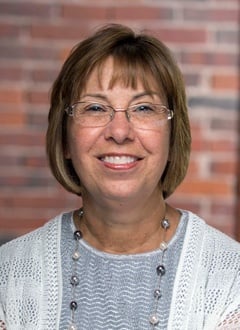
By Sue O’Connell, adapted from A Guide for Teachers, part of the Math in Practice series.
A decade ago, I wrote about my ten misinformed beliefs about mathematics—those beliefs that no one actually told me, but that I believed because of the way I learned math each day in the classroom. I believed that:
- Practice makes perfect
I believed that getting better was related to the amount of practice I did and that math required long sets of practice, usually in the form of worksheets. - Mastering calculations is the ultimate goal of math
I believed that memorizing procedures, algorithms and computations, were what math was all about. - Math is about getting the right answer
I believed the important thing was getting the one right answer and doing it in the way I was told. - Math is a series of isolated skills
I learned each topic as a chapter, took a test, and then moved to the next topic. - You must know basic facts before you can learn to solve problems
I believed that because word problems were always at the bottom of the page or at the end of the lesson, they were done after computations were mastered. - The first one finished wins
Speed was valued and a part of many classroom tasks. - The best mathematicians calculate in their heads
I believed that abstract thinking was more valued than drawing models. - Teachers tell us how to do math
I saw my job as sitting, listening, and practicing what I was told to do. - Math is done just in math class
Worksheets of isolated facts filled the day rather than connections to life. Computations rarely had a context. - Some people are good at math and some are not
I believed you were either a math person or you weren’t because some students just seemed to get it naturally and the ones who didn’t simply got mediocre or poor grades.
Consider all of the things you thought about math. Do you still believe them? Do you see how I could have developed these beliefs about math based on how I experienced math as a student in a typical drill-and-practice classroom? Do you see the faulty thinking in my misinformed beliefs about math?
Before we begin to change our math teaching, it’s helpful to reflect on our own beliefs and consider whether they should still drive our instructional decisions. If you have a positive view of math, hold on to it. If your past experiences have filled you with frustration, anxiety, or apathy about math, now is the time to get rid of those old fears and anxieties. The better you understand math and the more strategies you acquire, the quicker those old feelings will dissolve. Let’s not pass along negative views of math. It’s time to break that cycle. Let your students see your love of math. Let them see you take risks. Let them see you try and fail and still want to try again.
The teaching strategies we choose will form our students’ beliefs about math. Will our students leave our classrooms thinking that math is all about speed and right answers, or will they have a different set of beliefs that embrace understanding, discovering, thinking, problem solving, and risk taking? Do we believe that our students can like math and succeed at math? Do we believe that math can be taught in a more effective way? Do we see the need for reflecting about the way we teach math and finding ways to make it better for our students? We recognize that modifying our teaching practices is likely to make us feel awkward and uncomfortable at times during the process, but do we believe that it is worth it to find ways to improve the elementary math experiences of our students? If so, then we are ready for the change.
♦ ♦ ♦ ♦

Sue O’Connell has decades of experience supporting teachers in making sense of mathematics and effectively shifting how they teach. A former elementary teacher, reading specialist, and math specialist, she is also a nationally known speaker and education consultant who currently directs Quality Teacher Development, an organization committed to providing outstanding math professional development for schools and districts across the country.


